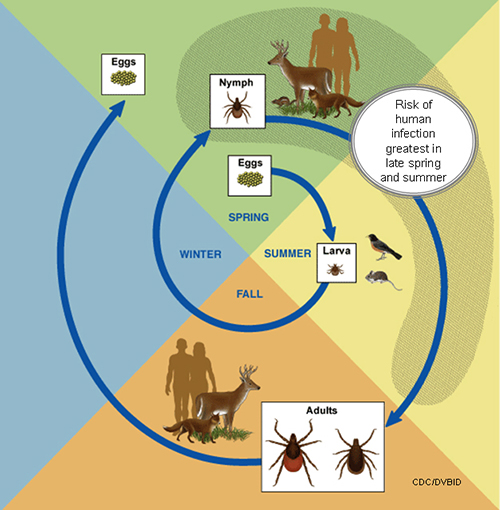Posts Tagged ‘summer safety 2019’
Grilling Safety at Summer Picnics and BBQs in Massachusetts

The first rule of grill safety: never leave your BBQ unattended.
As we approach the Fourth of July, many of us have grilling on our minds, and all the delights of summer BBQs. If you plan to grill, we hope you enjoy, but please remember to follow the rules of safety at all times.
This is the time to plan, because as we enjoy friends and family, July is the peak month for grill fires, the weeks when nearly 20 percent of all grill fires across the U.S. happen, according to the National Fire Protection Association (NFPA). August is another high risk month, accounting for 12 percent of grill fires.
Though these fires are devastating and life-changing events, they don’t always make the news. But according to the Massachusetts State Fire Marshal’s office, there were 474 fires involving grills, hibachis and barbecues between 2014 and 2018. Nineteen civilians were injured and seven firefighters were hurt in the wreckage. Property damage totaled $3.8 million in losses.
Across the 50 states, firefighters responded to 10,200 home fires involving grills, hibachis and barbecues each year from 2013 to 2017. Ten civilians were killed and 160 were injured. Property damage resulted in $123 million in losses.
Grilling Safety Tips
Compiled From the Massachusetts State Fire Marshal’s Office and Other Sources
- Only use propane and charcoal grills outdoors.
- Never leave your grill unattended.
- Keep a fire extinguisher nearby.
- Grills should be set up at least 10 feet away from the house or deck railings.
- Gas grills can be used on first-floor decks and patios, but they must be located on the ground level or have an outdoor stairway leading to the ground.
- Grills should never be set up under a roof overhang or low-hanging tree branches.
- Grills should not be used on fire escapes.
- Take additional precautions around children. Keep matches and lighters out of their reach. Create a circle of safety, keeping children and pets at least three feet away (more space is better).
- Do your grilling at least three feet away from tables and furniture. Fold grill covers and remove them from the cooking area.
Safe Handling of Propane Tanks
- Never smoke while handling or cooking with a propane cylinder.
- Keep propane tanks outdoors at all times, at least 10 feet distance from doors and other building openings. This includes windows and dryer vents.
- Keep propane tanks at least 20 feet from air intake vents and ignition sources.
- Propane cylinders should be stored outdoors in shady areas. Cylinders should not be used or kept in high temperatures.
- Replace propane cylinders that are aging, rusting or showing other wear and tear.
Charcoal Grills
- As with other grills, only use charcoal grills outdoors.
- When using charcoal grills, only use charcoal starter fluid. Never use gasoline or kerosene.
- Never add lighter fluid to hot coals. This can cause a flash fire, causing serious skin burns.
- Use charcoal grills in open outdoor decks and patios, just as you would gas grills. Be aware that charcoal briquettes emit carbon monoxide, a clear, odor-free gas which can accumulate in spaces and be deadly. Charcoal grills should never be placed in close quarters near an open window.
- Allow the grill to cool. After 48 hours pass, you can safely dispose of coals.
- If you cannot wait 48 hours, soak the coals in water, then place them in a metal container.
Maintaining Grills
- Review the product manual and instructions that come with your grill.
- Start by opening your grill to see if there is any animal activity or unexpected conditions.
- Next, check that your propane tank is safe for use. Dab soapy water on your propane tank and turn it on for a moment. If there is bubbling, you may have a potential leak. This should be done carefully. Before you try, watch a National Fire Protection Association video.
- Check that connections are tight before you turn the gas on.
- Clean the grease trap every time you grill.
Rooftop Grilling
Rooftop grilling is against the law in Massachusetts. When someone tries to grill on a rooftop, the damage can be deadly and exponential. Some may still remember the 2010 gas grill fire explosion that exploded and lit up the sky over Charlestown. Starting the fire was an illegal propane tank which exploded on a residential building’s rooftop. Soon after, three other illegal gas tanks burst nearby, igniting a 4-alarm blaze which move through several buildings.
Firefighters – 125 in all – battled the fire on a 100-degree Boston day. Nine firefighters and two civilians were treated for heat exhaustion injuries.
Maintain Safe Decks and Porches
Grill fires can happen when someone makes a mistake while cooking, when a child gets too close to the grill or if the grill has a product defect. Landlords may be held responsible in certain grill fires if they keep a defective grill or fail to meet building codes and illegally close off access ways. In Massachusetts, most residential properties are also required to have working smoke alarms on each floor of floor, including inside bedrooms and other areas. They must also have working carbon monoxide detectors.
You cannot always prevent negligence in these situations. But you may be able to minimize many injuries by providing yourself a little more room to work and taking it slow. Keep the grill area and walkways leading there open and clear. When you take grill covers off, set them in safe areas away from the grill. Finally, tell everyone in your home you are grilling and ask another adult to watch children.
Sources for this blog include:
Grilling Safety, Mass.gov
Getting Fired Up for Grilling Safety, Massachusetts State Fire Marshal’s Office
National Fire Protection Association
About Breakstone, White & Gluck
Breakstone, White & Gluck is a Boston personal injury law firm with expertise in premises liability and product liability cases. With more than 100 years combined experience, our attorneys have been recognized as top-rated personal injury lawyers in Massachusetts. Through our Project KidSafe campaign, we also work to bring safety information to individuals and families to help them make safe choices.
If you have been seriously injured by the negligence of someone else, learn your legal rights for seeking compensation. For a free legal consultation, contact us at 800-379-1244 or 617-723-7676 or use our contact form.
Beware of Tick Bites This Summer

Usually we post blog entries about preventing accidents and safety issues. But here is something that is a serious matter of public health, and we want you to protect yourself!
The incidence of tick-borne illnesses is rising sharply in Massachusetts, in New England, and throughout the country. If not diagnosed and treated promptly, infections can lead to disabling injuries, brain damage, organ failure, and even death. Prompt diagnosis is key, but even more important: Avoiding tick bites.
Understanding tick behavior is the first line of defense. Ticks are active throughout the warm weather months, but even a warm day in February can bring them out. They are most likely to transmit disease in the spring and early summer when they are in their nymph stage (when they are young and smaller). Ticks lurk in leaf litter, tall grass, and on shrubbery, just waiting to hitch a ride on your skin and clothing. Then they wander around until they find a place to bite. They will attach themselves and suck your blood until they are fully engorged. And if they are carrying one of the many bacteria that can make you ill, it will be transmitted during this time.
There are several ways to protect yourself, including wearing insect repellent or clothing treated with permethrin, an effective insecticide that is safe to use. Prevent ticks from getting on your skin by wearing long pants and long shirts, and stay tucked in. Check for ticks after you have been outside. More on this below.
Tick Diseases are on the Rise
It’s unfortunate that we have to think about protecting against ticks. But it’s also necessary. Each summer brings more and more reports of tick-borne illnesses in Massachusetts and across the U.S. According to the Centers for Disease Control and Prevention (CDC), 59,000 tick-borne diseases were reported during 2017 alone, more than 10,000 cases over 2016. More than 42,000 cases were Lyme Disease. According to the CDC, the number of U.S. counties considered at high-risk for Lyme Disease increased by more than 300 percent between 1992 and 2012.
Lyme Disease and Other Tick Diseases in Massachusetts
In Massachusetts, several types of ticks are known to spread infection. These include the black-legged tick, most often known as the deer tick, the dog tick and the lone star tick (Source: Mass.gov).
Black-legged ticks can transmit Lyme disease, anaplasmosis (HGA), babesiosis and other tick-borne illnesses. These are all very serious illnesses which can leave an otherwise healthy person with chronic pain, an irregular heart rhythm and other symptoms. Some of these illnesses can even lead to death.
While we associate ticks with warm weather, black-legged ticks can bite year-round in Massachusetts. The young ticks (called nymphs) are most active during May, June and July. Adult ticks become more active during the spring and fall, but can bite anytime the temperature is above freezing. It’s easy to mistake nymphs for other insects because they are small, about the size of a poppy seed.

Black-legged tick by size. Graphic courtesy: CDC.
When black-legged ticks infect someone with Lyme Disease, the person may suffer fever, chills, headache, fatigue, muscles and joint pain and swollen lymph nodes. About 4 out of 5 people will break out in a rash which is often a bullseye in appearance. In some cases, more serious symptoms emerge, including arthritis, heart palpitations, joint pain, nerve pain and problems with short-term memory.
Adult dog ticks are roughly the size of a watermelon seed and can spread Rocky Mountain spotted fever, which can lead to fever, headache, vomiting and rash in the first 3 to 5 days. Rocky Mountain spotted fever can result in death if left untreated.
Though it’s relatively rare in Massachusetts, dog ticks can also pass on certain types of tularemia, which results in skin sores and swollen glands. As for lone star ticks, it is important to guard against them because they can also cause rash, tularemia and southern tick-associated rash illness (STARI). But lone star ticks are not a significant source of human illness in Massachusetts at this time, according to the state website.

The the greatest risk for tick bites is in late spring and summer. Graphic courtesy: CDC.
How to Protect Your Family
The best ways to protect yourself from tick bites and tick-borne illnesses is to be aware of potential exposure in the deep woods and tall grass, wear the right insect repellent and continuously check your skin throughout the day and at the end of the day.
Insect Repellent
- Use EPA-registered insect repellents which contain DEET, picaridin, IR3535, oil of lemon eucalyptus (OLE), para-menthane-diol, or 2-undecanone. Use these products as instructed.
- Use insect repellent products with permethrin to treat clothing, socks, boots and tents. You can also look for products which have been pre-treated with permethrin. Follow the instructions for application carefully. Permethrin is applied to clothing, then allowed to fully dry. It is not meant to be sprayed on just before use. Treated clothing is effective for several washings. The good news is that the ticks that do climb on your treated clothing will die.
- Take extra caution when shopping for insect repellent products for children and those with medical conditions. Again, read product instructions.
- Children younger than 2 months old should never use products containing DEET. The CDC recommends putting babies in strollers covered in mosquito netting.
Understand How Ticks Infect
Ticks can contract bloodborne infections such as Lyme Disease by feeding on infected animals, especially white-footed mice. Then they carry these infections into your backyard and wait for their next prey. This could be you, your children, your guests or your pets.
Unlike other insects, ticks cannot fly or jump. They latch onto tall grass with their back legs, ready to climb on you when you pass by. This is called “questing.”
A black-legged tick can attach to your skin and feed on your blood for several days. Once the tick is done feeding, it will remove itself and find another person or animal to bite.
Avoid tall grass and shrubs, as well as the outer edge of your backyard. Ticks often camp out along well-traveled paths on your property, including near stony landscaping. Wherever you walk or hike this summer, walk in the center of the path.
The sooner you see a tick on your body and remove it, the better. According to the CDC, people who remove ticks within 24 hours can greatly reduce their risk of getting Lyme Disease.
Pets
Cats and dogs can bring ticks into your home. Talk to your veterinarian about how to protect your pets during the summer months. There is no evidence showing your pet can pass Lyme Disease onto you, but if your pet is bitten, they could suffer symptoms and you could be bitten as well. Since ticks can be carried into your home, be aware of exposure in your house.
Dressing Safely for the Outdoors
- Dress appropriately. Wear long-sleeves and pants when working in wooded areas. Tuck shirts into pants and pants into boots.
- Consider wearing white and other light colors if it helps you check for ticks easier.
- Another tip is you can use a lint roller on your clothes and shoes before you come inside.
- Take a shower as soon as you come inside. Rinsing ticks off before they bite is very effective.
- Toss your clothes in the dryer on high heat for 10 minutes to kill ticks.
Checking for Ticks and Extra Precautions
- Conduct a full-body tick check once or more daily. Use a hand-held or full-length mirror so you can check your back and other areas of your body. Check along your hairline, inside and behind your ears, the back of your neck, all over your arms and armpits, legs, behind your knees and even between your toes.
- Parents should check children thoroughly for ticks every few hours. Teach children to regularly check their own arms and legs as they play.
- Look closely and remember, ticks are different sizes.
- If you see a tick, carefully remove it from your skin with a pair of tweezers. Pull it out with a steady hand so you remove it all at once. Then clean your skin with rubbing alcohol or soap and water.
- You should dispose of a tick just as you would anything else that’s poisonous. Place it in a sealed plastic bag or flush it down the toilet. If you are concerned that the tick was on you long enough to bite, you can seal the tick in a plastic bag for later testing.
Visit Your Physician and Get Prompt Treatment

Massachusetts residents should visit their doctor if they suffer a tick bite.
There is a high risk for Lyme Disease in Massachusetts and other New England states. If you, your child or another family member were bitten by a tick, contact your physician immediately. Even if you don’t believe you are experiencing any symptoms, this is an important call to make. Your physician is knowledgeable about your medical background and the medications you are on and is in the best position to help you understand if you may need to take an antibiotic. If exposure to Lyme disease is considered a probability, your physician will likely prescribe a single dose of doxycycline as a prophylactic measure. It is very important to monitor yourself for symptoms of potential infection, including rash, headache, muscle or joint ache, or fever. If you are suspicious, seek prompt treatment to avoid more serious complications.
Use Reasonable Care and Good Sense
Don’t let the fear of ticks or other insects ruin a perfectly good summer. Use reasonable care and good sense, and you and your family should enjoy great outdoor fun.



